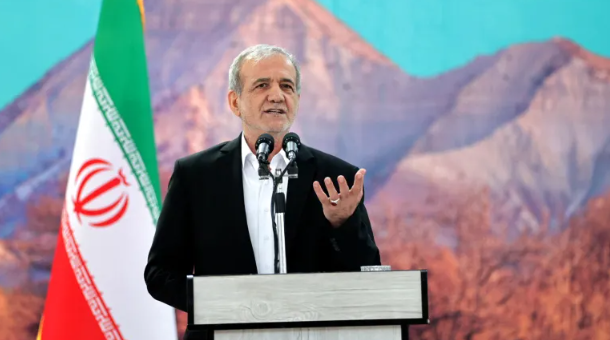– Arshad Shaikh
The Middle East and the world went through one of its worst crises in 2025 when Iran was at the receiving end of an unprovoked onslaught from Israel and the United States. The war between Israel plus US versus Iran could have escalated and spiralled out of control. Fortunately, the 12-day war ended with a ceasefire mediated by Qatar. The swift resolution, despite early violations, saw Israel lift wartime restrictions and Iran pause IAEA cooperation, offering a glimmer of regional calm.
However, the situation in Gaza is very different. Israel’s genocide has killed more than 57000 Palestinians in more than 21 months and despite fresh negotiations in Cairo and Doha there is no end in sight to Israeli war crimes. The USA continues to arm Israel while claiming to be a mediator. This merely increases the suspicion among Palestinians and the Muslim community worldwide that America is not an honest broker and cannot be trusted. This paradox calls into question America’s selective urgency in conflict resolution as well as its role in the region. What causes this discrepancy and what does it mean for the future of Palestine?
Swift Peace for Iran, Endless War for Gaza
With the announcement of the Israel-Iran ceasefire on June 24, a conflict that threatened to spread throughout the region quickly de-escalated. The conflict claimed hundreds of Iranian and Israeli lives. President Trump’s Truth Social post boasted, “Both Israel and Iran wanted to stop the war, equally! It was my great honour to Destroy All Nuclear facilities & capability, and then, STOP THE WAR!”
In contrast there is no end in sight to the continued genocide in Gaza. Hamas demands a full Israeli withdrawal, while Netanyahu vows to eradicate Hamas. The USA is able to mediate peace with Iran but not with Gaza highlighting a glaring discrepancy. This double dealing when it comes to the conflict between Israel and Palestine is extremely damaging for world peace.
As Moustafa Bayoumi wrote in The Guardian, “The double standard with Israel and Palestine leaves us in moral darkness,” noting how Western powers, including the U.S., readily condemn other conflicts but shy away from criticising Israel’s actions. This disparity suggests U.S. priorities favour strategic allies over Palestinian lives, leaving Gaza under a sky of bombs, not hope.
Arms for Israel, Empty Calls for Peace
America portrays itself as an impartial mediator but its actions reveal a blatant bias. In the dispute between Israel and Iran, the USA led attacks on Iran’s nuclear installations before switching to diplomacy and achieving a ceasefire in a matter of days. Meanwhile, in Gaza, the U.S. keeps providing Israel with weapons and intelligence allowing for a campaign that has killed thousands of people, including 72 in a single day on June 28, 2025.
The Gaza Humanitarian Foundation (GHF), a U.S.-backed aid mechanism, is criticised as a “death trap,” with X user @academic_la stating, “Our weapons have been used to commit the genocide in Gaza. We vetoed every ceasefire resolution.” Human Rights Watch’s 2024 report condemned this hypocrisy, urging U.S. officials to admit Israel’s violations, as “the price of hypocrisy is even higher” than honesty. Agnes Callamard of Amnesty International told Al Jazeera, “The Palestinian people are under a regime of oppression,” enabled by U.S. support, unlike its stance in other conflicts. By arming Israel while calling for peace, the U.S. undermines its credibility, perpetuating Gaza’s humanitarian crisis.
Zero Leverage over Israel
In spite of its influence, the U.S. puts little pressure on Israel to stop the violence in Gaza. The U.S. has condemned the ICC for seeking accountability from Netanyahu and vetoed several UN ceasefire resolutions, most recently in 2024. Oliver Stuenkel, in Foreign Policy, argued, “Israel will get off more lightly with potential war crimes than Russia,” highlighting the lack of sanctions on Israel despite its blockade and civilian casualties. In 2025, Israel’s “Operation Gideon’s Chariot” deployed five divisions in Gaza, with Netanyahu admitting to allowing “just enough” food to avoid starvation, a policy UK Foreign Secretary David Lammy called “abominable.” Yet, the U.S. remains silent, with State Department spokesperson Tammy Bruce emphasising only Israel’s “right to defend itself” on May 29, 2025.
Aluf Benn, in Foreign Affairs, noted, “No U.S. president has forced Israel to stop building settlements or end its occupation,” underscoring America’s reluctance to leverage its $3.8 billion annual aid to curb Israel’s actions. This inaction fuels perceptions of U.S. double standards, as it condemns other nations’ violations but shields Israel’s.
Consequences for Palestinians and the Muslim World
The American selective peace-making breeds mistrust and disillusionment throughout Palestine and the Muslim world. Despite a proposal for a 60-day ceasefire on July 2, 2025 the failure to secure a ceasefire in Gaza has left 50 hostages and millions of Palestinians in danger with famine-like conditions reported.
Reflecting a general sentiment, X user @KhalilEJahshan wrote, “The United States has disqualified itself from brokering peace by blindly siding with Israel,” reflecting widespread sentiment.
The Carnegie Endowment’s 2025 report warned that U.S. support for Israel’s “apartheid system” in Gaza and the West Bank alienates the Global South, driving nations toward BRICS. Palestinian analyst Khalil Jahshan told Arab Center DC, “The U.S. touts Arab-Israeli normalisation as peace, side lining Palestinians,” a view echoed by Indian Muslims wary of Western diplomacy. For Indian Muslims, Gaza’s plight demands solidarity and advocacy for a just peace. American hypocrisy – swift to resolve Iran’s conflict but passive on Gaza, underscores the need for the Muslim world to push for accountability and demand nothing less than an end to Palestine’s occupation.




